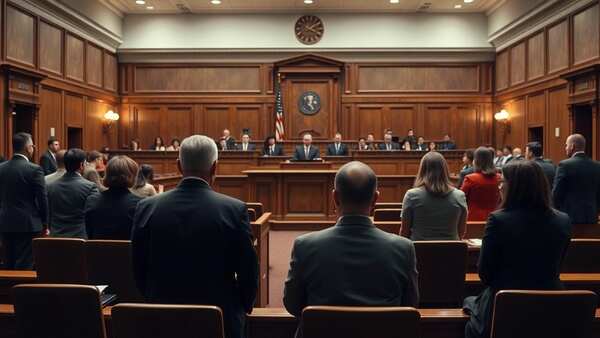Japan opens the test challenging ‘hostage justice’


Ai-generated image
Tokyo: A test challenging long and severe detention of criminal suspects opened in Tokyo on Wednesday in Tokyo, with a “colonial” treatment with the plaintiff, says that they ignore the innocence estimate.Preachers argue that long-testing detention in Japan is very easily completed, especially if suspects remain silent or refuse to accept.The lawsuit is challenging the constitutionality of the system of “hostage justice” in which confession becomes a de-facto status for their release.The term was popularized by the arrest of 2018 by Carlos Ghosh, the head of former-Nisan, the arrest of 2018 and months-long detention, the international rights groups also repeatedly criticized it in the past.The new lawsuit has challenged the “rubber-stamp” ability of Japanese judges, and to reject bail without demonstrating “potential cause” that evidence will be destroyed, according to lead lawyer Takashi Takano.24/7 was detained, people who maintain their innocence often “are” deprived of their freedom, property and life “before the trial starts or to continue guilty, Takano told a meeting after the first hearing on Wednesday.Pre-signal detention can last up to 23 days, expandable by many reconsideration.Bail becomes possible only after the prosecution, but the option is often rejected. If the accused denies the allegations, the campaigners say.One of the plaintiff is Tomya Asanuma, who was held in police custody in police custody last year, which was eventually acquitted.“It was as if I was in a zoo cage, being fed through a small window”, Asanuma said after hearing, “without any secrecy”, remembering life “. “He treated me the same as I was an alle.”“There are many of those who beaten (to take custody) and confessed to immediate release in favor of immediate release, with their names as former criminals dirty,” said Takano.This, critics say, partially helps explain why Japan has long maintained high sentence rates of more than 99 percent.Meanwhile, supporters, almost correct punishment gives rates to “accurate justice”, where prosecutors only carry forward airtight cases that they are convinced of winning. The Ministry of Justice refused to comment on Takono’s trial when the AFP was approached by the AFP before the inauguration of the trial.However, it stated that the imprisonment of the suspects and the defendants along with the refusal to bail, “based on law and evidence, and was ordered properly”.




